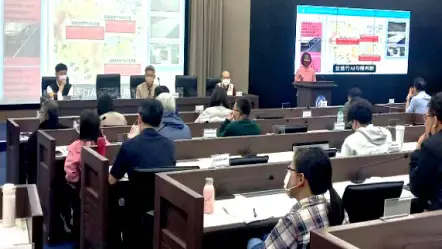 Illegal Waste Dumping Management
Illegal Waste Dumping Management
In recent years, cases of illegal disposal of business waste on state-owned (public) lands have been rampant. Locations involving criminal cases often require administrative and criminal investigation procedures such as evidence preservation, investigation of polluters, and identification of parties responsible, significantly impacting the subsequent cleanup and environmental rehabilitation of state-owned (public) lands.
Technological Consolidation and Enhanced Collaboration
The administration is committed to promoting environmental pollution prevention technologies, such as deploying various types of environmental sensors and surveillance cameras, integrating satellite imagery, and using unmanned aerial vehicles to assist with inspections. These aim to enhance law enforcement efficiency and reduce manpower burdens.
To strengthen regional environmental governance concepts and expand self-management initiatives and improve coordination among land management and law enforcement agencies in central regions, discussions focus on relevant preventive strategies and self-management measure with the hopes that through a communication platform, agencies can fulfill their territorial responsibilities and enhance oversight of managed lands, thereby preventing the illegal disposal of waste on state-owned (public) lands.
The central region state-owned (public) land waste dumping self-management contact platform gathers land management agencies in the central region to discuss solutions to prevent waste disposal on state-owned (public) lands. The goal is to strengthen the sense of responsibility among management agencies, improve land oversight, and reduce the risks of illegal waste disposal on state-owned (public) lands, thereby collectively safeguarding environmental quality.

- Data Source: Central Center of Environmental Management
- Publish Date: 2024-12-10
- Update Date: 2026-02-12

 Related Topics
Related Topics





